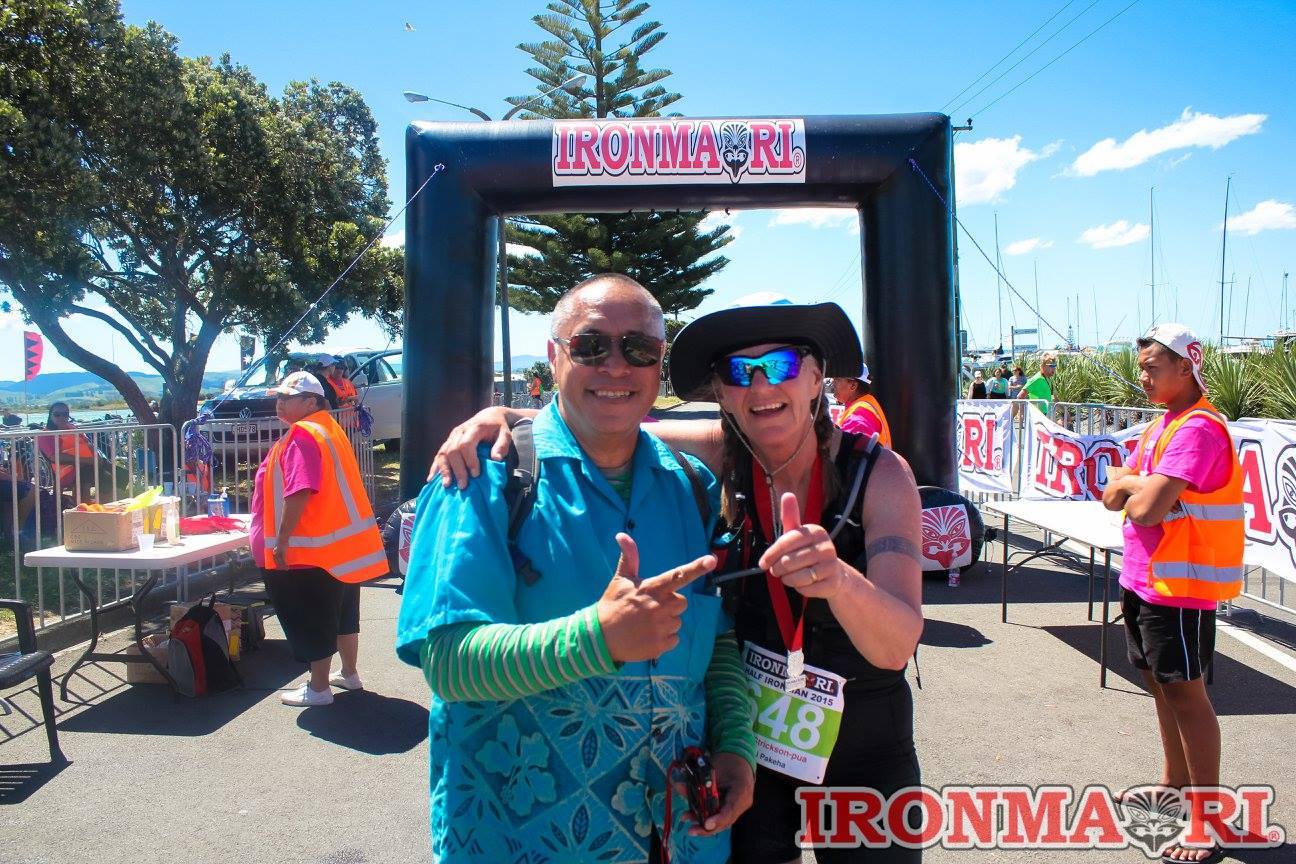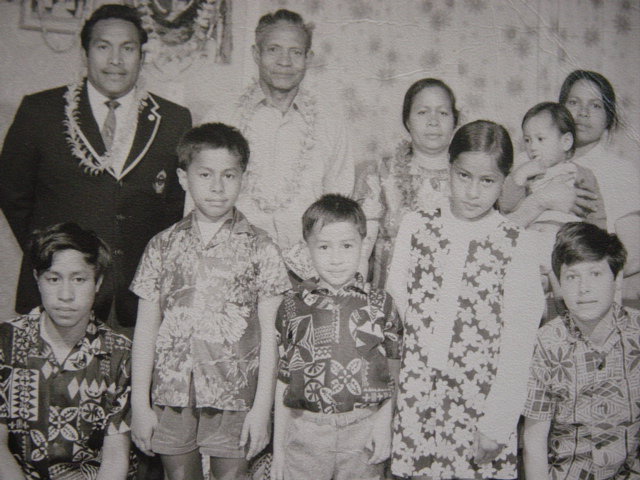
A multicultural journey: embracing diversity and making an impact
Meeting on campus in 1982 and having been married for 40 years, Te Kunenga ki Pūrehuroa Massey University alumni Reverend Muamua Sofi Strickson-Pua, Ngāti Hamoa Cantonese Saina Irish French Gafa Whakapapa, and Linda Ann Strickson-Pua, Ngāti Pākehā Ingarangi England Ingarihi English, beautifully represent a multicultural family, blending English, Irish, French, Samoan, Chinese, and Māori heritage. Throughout their remarkable journey together, they have dedicated themselves to creating a positive impact in the lives of others.
From campus to community
Mua, a renowned Presbyterian minister, author, music producer, and motivational speaker, is now 65. Throughout his life, he has led numerous initiatives focusing on community enrichment. Drawing from his experiences and a passion for social justice, he co-founded the Street Poets Black 1982 Māori and Pacific Islands street theatre. He pioneered the PATH (Pasifika Art and Therapy for Healing) programme at Tagata Pasifika Resources and Development Trust. He has also made significant contributions as the producer of Cafe Specific, a vibrant venue for Pasifika hip-hop and poetry.
The couple’s paths to Massey were unique, each with their challenges and motivations. Linda’s journey began in Palmerston North, inspired by her father’s dedication to education. Her path led her to Massey, where she completed her Bachelor of Education and found new personal and professional growth opportunities.
Mua completed his secondary schooling at Mount Albert Grammar School before relocating to Palmerston North for a Bachelor of Social Work at Massey in 1978. Leaving his home in Auckland, he embarked on a transformative journey that involved navigating cultural shock and immersing himself in activism. After a temporary setback, Mua resumed his studies in 1982, armed with newfound experiences and a determination to make a difference.
Linda and Mua’s paths intertwined in 1982 during an anthropology course at Massey. Their connection was immediate, and they became engaged by the end of the first term, eventually marrying after their final exams.
Their shared passion for social justice and advocacy led them to form a Pasifika media advocacy group. This began their involvement in media, broadcasting, television, documentaries, and the Chaplaincy Ministry.
“By 1983, we had started the path for selection in Presbyterian theology. We completed our undergraduate studies at Massey and continue our postgraduate theological studies at Knox College, the University of Otago,” Mua says.
“Massey helped me to become aware of why Te Tiriti o Waitangi was so important and enhanced my understanding of a truly multicultural Aotearoa New Zealand. As a multicultural family, Linda and I show that cultural respect back to our Strickson family connection. We have also been very active in the dialogue of whānau, aiga of mixed heritage and celebrating our diversity,” Mua says.

 Leading the way
Leading the way
Linda and Mua have continued their empowerment and community engagement journey. They have shared their expertise in various fields, including Pacific literature, community development, social policy, theology, education, media studies, and Pasifika hip-hop. Through family exhibitions, café performances, and community gigs, they have fostered inclusivity and bridged the gaps between Māori, Pasifika, Pākehā, and Tauiwi communities.
Mua’s understanding of cultural heritage influences his writing. Though he primarily produces poetry, he has also written short stories, non-fiction essays, and educational articles - much of his writing concerns Pasifika’s identity and culture. His first poetry collection, Matua, was published by Pohutukawa Press New Zealand in 2006. It raises the history of a single family to the realm of universal human significance and looks to recall Pasifika history as a means of facing the cultural future.
“Matua is a gift to Linda, our children Ejay, Feleti, Byron, and grandchild Wilco Byron, Dremayer Liberty Choir, Che’den Sofi and Jane Filemu, then for our aiga, whānau, families, and friends. The book also acknowledges my Chinese and Irish whakapapa from Aotearoa New Zealand, to Samoa, to England. Matua honours my mother, Vaitulu Purcell, and my father, Pua Sofi, and those loving, amazing migrant parent generations who invested in our future with hope,” Mua comments.
“Poetry is an effective way to help facilitate healing, self-awareness, and personal growth. I’m not perfect. My life is not perfect. I tell the students that. And it is never too late to start a new life,” he adds.
As they commemorate their 40th ruby wedding anniversary and Linda’s 69th birthday, the influence of Linda and Mua continues to expand. Linda’s recent triumph in the IronMāori TOA Women’s 65-69 Years category not only attests to her dedication to personal well-being but also inspires her family and community.
Reflecting on her accomplishment, Linda shares, “I devoted a year to training, eventually completing the competition in 16 hours, 47 minutes and 42 seconds. It was an honour to clinch the title in the Women’s 65-69-year-old category, making me the most senior female participant to compete and successfully finish the race.”

Family, legacy, and future
Growing up in the vibrant neighbourhoods of Grey Lynn and Ponsonby during the 1960s-80s, Mua and his siblings were immersed in a diverse community that shared a strong work ethic. These humble working-class areas welcomed everyone, fostering a sense of unity and resilience. Five of six siblings graduated from university, attaining multiple degrees. Today, Mua and his youngest brother, Sofi, proudly share their Pacific urban histories as a tribute to their beloved parents and the migrant generation that paved the way for their success.
As Mua and Linda celebrate becoming great-grandparents to Lacey Grey, they take immense pride in witnessing the continuation of family values and traditions. “The younger generations of our family have embraced the principle of honouring our parents by carrying forward their legacy through education, creative endeavours, and sharing their stories with the world,” Mua expresses with pride.
